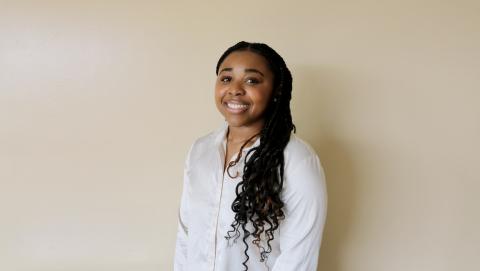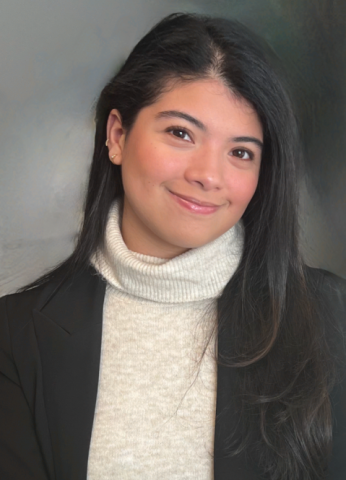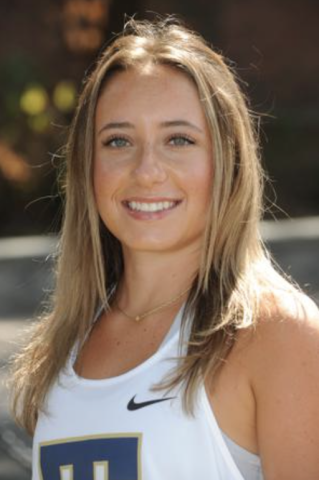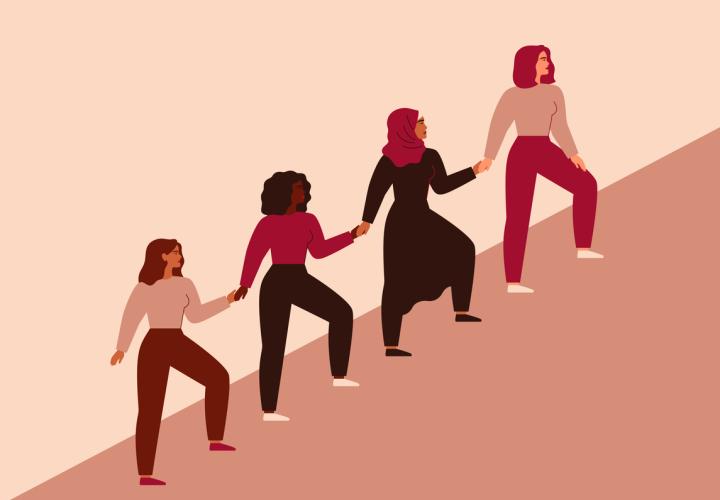At Connecticut Children’s, a goal of ours is to uplift, empower, and inspire those around us. As we celebrate Women’s History Month in March, we honor the remarkable achievements of women who have blazed trails and inspired others. Together, we strive to open doors of opportunity and encourage our team members to envision possibilities beyond the expected.
This month, we celebrate the incredible women making strides in the healthcare industry, enriching lives and promoting wellness within their communities. Through the Hayley Petit Injury and Violence Prevention Fellowship, supported by the Petit Family Foundation, we provide young women enrolled in colleges and universities with a stipend to collaborate with Connecticut Children’s experts in the Injury Prevention Center (IPC) in studying injury and violence prevention, empowering the next generation of leaders in this critical field. The mission of the IPC at Connecticut Children’s is to reduce unintentional injury and violence among Connecticut residents and to translate research into injury prevention programs and policy. We saw this month as an opportunity to highlight and uplift the voices of our current fellows.
Mirsha Pierre

Can you share a bit about your background and what inspired you to apply to the Fellowship?
My name is Mirsha and I am a senior at UConn studying Physiology and Neurobiology and Spanish Dual Degree with a minor in Molecular and Cell Biology. I recently decided I wanted to pursue a career in public health because, while I have a lot of interest scientifically, at my core I am a strong believer in health equity and I have seen and experienced firsthand how disparities in the system directly correlate to the outcomes we see. I applied to the fellowship not only to broaden my understanding and knowledge in the field of public health but also to learn more about injury and violence prevention since both injury and violence are persistent issues in my community.
What do you find most rewarding about your work as a medical fellow? Conversely, what are some of the challenges you face?
Working as a medical fellow is a step to aiding in solutions that plague our communities. It is an experience to research and learn more about issues that interest us but also learn from experts who have so many years of experience and are expanding the field, which is a privilege. One challenge for me is going to be in the development of the project. Public health is a new field to me, so I am still working on language and being cognizant of how I present the information. This is a learning experience so I am excited to see how the next few weeks will play out!
What makes fellowships like the Hayley Petit Injury and Violence Prevention Fellowship essential in supporting women in medicine to achieve their goals while emphasizing the significance of their voices?
Medicine tends to group individuals. I (personally) believe the best provider or scientist is the one who can understand that there are issues that plague the different communities they work with and there should be different approaches in providing the best quality care. Women’s voices are often silenced, but a fellowship like this gives the confidence and inspiration for young women like ourselves to make a difference and continue to speak out and make contributions to the field of science and medicine that will stick with us for a lifetime in our careers. I hope to take what I learn and implement it in grad school and continue using these skills in my career.
Kathy Miranda

Can you share a bit about your background and what inspired you to apply to the Fellowship?
I am a first-generation Latina student. I am passionate about health education in low-income communities of color and how to empower communities to make informed decisions about their health. I believe this fellowship will provide me with the necessary skills to know how to communicate topics in a manner that is comprehensible to the majority.
What do you find most rewarding about your work as a medical fellow? Conversely, what are some of the challenges you face?
The most rewarding aspect is getting to learn something new every week and becoming aware of the various opportunities there are to get involved in the field of public health. What is perhaps most challenging is to know there is still so much to do to ensure the general public’s well-being, yet I am reminded of the hope there is to ameliorate these hardships every week when I hear from a speaker.
What makes fellowships like the Hayley Petit Injury and Violence Prevention Fellowship essential in supporting women in medicine to achieve their goals while emphasizing the significance of their voices?
Being a fellowship that is open to women gives an opportunity to foster community among other women passionate about health while also creating an environment for women to continue our process of learning—from one another and experts in the field. This fellowship is unique because it provides a space to get different perspectives which emphasizes the significance of our voice.
Fatima Khan
Can you share a bit about your background and what inspired you to apply to the Fellowship?
I am a sophomore at UConn studying Physiology and Neurobiology with a minor in Anthropology of Global Health. In the future, I want to be a doctor. I applied for this fellowship because I believe that public health lies at the heart of medicine because it addresses broader factors that influence individual and community health outcomes. I wanted to deepen my understanding of public health so I could more meaningfully contribute to impactful changes within the field and ultimately become a more effective and compassionate doctor.
What do you find most rewarding about your work as a medical fellow? Conversely, what are some of the challenges you face?
Learning from experts in the field has been incredibly rewarding, and I am excited to continue to do so. One of the challenges is learning about injuries that have happened and are happening, knowing that they are preventable.
What makes fellowships like the Hayley Petit Injury and Violence Prevention Fellowship essential in supporting women in medicine to achieve their goals while emphasizing the significance of their voices?
Fellowships like this one are essential for supporting women in medicine as they provide specialized training and mentorship, champion research and advocacy, and serve as platforms for uplifting women by amplifying their voices and work so that they can excel and be a positive force in healthcare.
Emily Matson

Can you share a bit about your background and what inspired you to apply to the Fellowship?
Currently, I am a senior pre-med student studying Biology with a Jewish Studies minor at Trinity College graduating this upcoming May. As someone who wants to work in the medical field, I was drawn to the fellowship as I have previous experience working at the Injury Prevention Center, which has brought me to this field of research. Enjoying this work and knowing how injury can be prevented inspires me in wanting to continue with injury prevention. This led me to apply to this fellowship as I hope to learn and grasp as much as I can, to hopefully one day use in my career.
What do you find most rewarding about your work as a medical fellow? Conversely, what are some of the challenges you face?
Being part of a healthcare team and contributing, even in a small way, to the overall patient care process is gratifying. It’s inspiring to collaborate with professionals from different disciplines all working towards the same goal. One of the challenges I face and acknowledge is the transition from academic knowledge to real-life scenarios. Which requires adapting to the multifaceted nature of social determinants to patient care, which can be both intellectually demanding and stimulating.
What makes fellowships like the Hayley Petit Injury and Violence Prevention Fellowship essential in supporting women in medicine to achieve their goals while emphasizing the significance of their voices?
Fellowships like the Hayley Petit Injury and Violence Prevention Fellowship play a crucial role in supporting women in medicine by providing access to resources, empowering our voices, and building a supportive community. For a biology major interested in medicine, this mentorship provided by experienced members from the public health world is particularly invaluable in navigating challenges that may arise in the future. This fellowship provides a platform for women to engage in research and advocacy related to violence and injury prevention, empowering us to contribute to important conversations in the medical field. Being a part of such a community, like the Hayley Petit Injury and Violence Prevention Fellowship, has offered a sense of belonging, encouragement, and inspiration. While also helping to build professional networks that can be beneficial throughout their medical career.
Alana Grant

Can you share a bit about your background and what inspired you to apply to the Fellowship?
I am a black woman in America. The number one health issue facing black women is domestic violence. That statistic is not only alarming but very appalling. Black adults in the United States are 60% more likely than white adults to be diagnosed with diabetes. In addition to this, black adults are about 30% more likely to die from heart disease. I grew up around some of these issues that disproportionately plague black communities. My father has diabetes and no health insurance. Investigating ways to help mitigate some of his very preventable issues sent me down a rabbit hole of discovery. I found the skewed statistics to be disheartening and became determined to bring awareness to them. My personal experiences with injury and violence and a desire for change for marginalized communities inspired me to become a Hayley Petit fellow.
What do you find most rewarding about your work as a medical fellow? Conversely, what are some of the challenges you face?
Working as a fellow at Connecticut Children’s is an extremely honorable experience. The opportunity to work with some of the most well-respected and experienced experts in the field is invaluable. It is often said that knowledge is power and having access to the information provided by people dedicated to injury and violence prevention is humbling. The most rewarding aspect of this fellowship is the chance to bring awareness and become an advocate for those impacted by injury and violence. Some challenges I might face are practical ways to implement what I learn in a way that translates to the greater public. Despite that challenge, I am confident that the fellowship will give me the tools to push the conversation on injury and violence prevention forward.
What makes fellowships like the Hayley Petit Injury and Violence Prevention Fellowship essential in supporting women in medicine to achieve their goals while emphasizing the significance of their voices?
The Hayley Petit Injury and Violence Prevention Fellowship is exceedingly important as it highlights voices that are normally not heard. Having a fellowship that is only open to women demonstrates that there is a space for us in medicine and that we deserve a seat at the table. It gives us the confidence to step into rooms knowing that our opinions and ideas are respected and valued. The mere existence of a women-only fellowship initiates a conversation on challenging stereotypes and addressing gender biases. The Hayley Petit Fellowship gives us the skills, connections, and research to establish ourselves as leaders and advocates in the field of medicine.
Interested in learning more about the Hayley Petit Injury and Violence Prevention Fellowship? Read more here.
